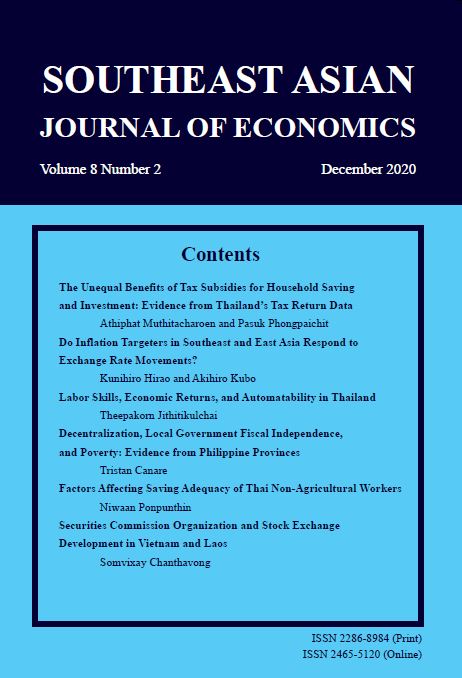The Unequal Benefits of Tax Subsidies for Household Saving and Investment: Evidence from Thailand’s Tax Return Data
Keywords:
tax subsidies, household saving, progressivity, personal income tax, developing countriesAbstract
This paper examines the progressivity impacts of tax subsidies in the Thai personal income tax system on household saving and investment using tax return data from Thailand. It measures the tax progressivity using the Suits index and computes bootstrapped confidence intervals. It finds that overall, the subsidies make the tax system significantly more progressive—the regressive effects of the deduction mechanism are outweighed by voluntary participation and the design regarding capped contribution levels. However, there is a strong heterogeneity in the progressivity impacts, with some tax subsidies being highly regressive. It also illustrates that turning tax deductions into non-refundable credits could have important effects on progressivity. Our findings raise concerns about the equity implications of such tax subsidies and suggest that policymakers should pay serious attention to the design of tax subsidies as well as the propensity of households to save or invest in different classes of assets.
Downloads
Published
How to Cite
Issue
Section
License
The submission of a manuscript implies that the paper is an original work and has not been published elsewhere. The author(s) authorize the journal to reproduce or distribute the paper in printed or other electronic forms.







